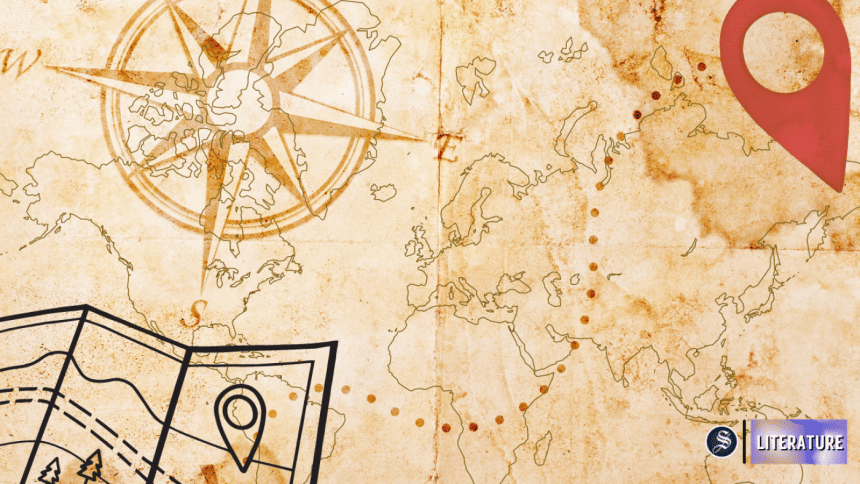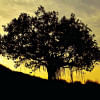A house a bit bigger on the inside

A common question: Where is your story set?
When you try too hard to situate your writing in the real world, often you will find that the math doesn't add up; in other words, it is like you have built a house that looks one way from the outside, with clearly demarcated outer walls and boundaries, and another way from the inside, with unexplained hallways, rooms, and staircases that could not possibly exist. In other words, you have set up something that looks like an ordinary by-the-numbers house, but on the inside you have changed its topography, breathing into it Narnia, Middle-earth, or just your own version of your hometown.
Let's put this another way: where is your story set? That is a question every creative writer has to hear from readers, and every writer has to wrestle with. There is something oversimplified and naive in the understanding that there can only be two types of settings: fantastical settings (Westeros or a galaxy far, far away) or "real world" settings. But what exactly is a "real world" setting, and is it beholden to the actual specifics, shall we say "outer measurements" of the real world? Any writer who fully knows and owns their locations, and any reader who has been around the block will know that a location in fiction is never strictly and literally a real world location, it is always, always at a slight tilt from reality, because fiction is invention and imagination. Kafka's novel Amerika is not really about the United States (Franz Kafka had never visited the country), nor was Terry Gilliam's film Brazil about the actual Brazil. These places are fictional constructs.
Playing with a location that seems real but is not is a tricky line to negotiate, and writer beware: you will be attacked. Let us say I am setting a work of fiction in my own neighbourhood, and as I am writing, I am walking down the avenue, seeing clearly in my mind's eye this coffee-shop here, this bank there, this ugly construction that is taking forever to complete. Am I under any obligation to make the area in my story the same as this reality? Of course not, you may say, nobody cares and it's fiction! And I would agree. Nevertheless, be ready for complaints. "But you can't cross an overbridge and simply walk to Dhanmondi from Gulshan!" or "this scene is bull because there are no opium dens in Dhaka …" Those are naïve readers, and they will quibble. Let them. The fun of creating a location is not to accurately describe if there are opium dens in Dhaka circa 2024, but to play with an alternate reality, a road not taken, a what if there were opium dens in Dhaka? You may play with other possibilities here.
In Mark Z Danielewski's horror cult classic House of Leaves, where he writes about a spooky house bigger on the inside than on the outside, he meshes a supernatural horror concept with a hyper-real setting, real world references, books, and "interviews" with actual people (Stanley Kubrick, David Copperfield, Camille Paglia, Harold Bloom, Jacques Derrida) which never actually happened, but Danielewski, with his unbounded imagination in a spectacular act of ventriloquism, let's them speak, paying homage and poking fun at the same time. In Bangladesh, he would have been jailed for taking this kind of artistic license, but the book is an example of the true possibilities of fiction. Unfortunately, we live in a world where, from theocrats to autocrats, namely those who lack the imagination to even comprehend a piece of fiction let alone write a novel, are vested with the power to judge, censure, and punish artists. So we must be careful, and for their benefit, make the house appear ordinary. But once inside, your only true obligation is to the power of your art.
Abak Hussain is a writer and editor. He is a Director of Talespeople, which oversees the Sehri Tales challenge.

 For all latest news, follow The Daily Star's Google News channel.
For all latest news, follow The Daily Star's Google News channel. 








Comments